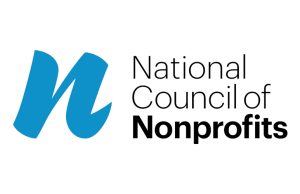It’s almost a time-honored tradition that some charities — and donors — don’t want to talk about. Someone makes a fortune on the misfortune of others and turns to charity to help shine up their public perception.
History provides plenty of examples of oil or railroad barons giving away their money to causes as a way to improve their images. The latest, and most public, example is Donald T. Sterling. The billionaire owner of the National Basketball Association’s (NBA) Los Angeles Clippers made his money in real estate and personal injury law. The same year he settled a multimillion-dollar housing discrimination suit he was honored by the local chapter of the NAACP.
Sterling is having trouble even giving money away lately, whether personally or through his eponymous foundation. In April, it was revealed that Sterling made derogatory remarks about blacks during a conversation that was recorded by an associate. The NBA took action once the recording went public, including a fine and lifetime ban. Charities have followed suit.
The local chapter of the NAACP pulled what would have been a second lifetime achievement award for Sterling and its president resigned after questions and criticisms about the award came to light. The NAACP’s national office plans to develop guidelines for its 1,200 active branches to help their award selection process.
UCLA said thanks but no thanks to a $3 million pledge, including a $425,000 initial payment Sterling recently made in support of basic kidney research by the school’s Department of Nephrology.
“Mr. Sterling’s divisive and hurtful comments demonstrate that he does not share UCLA’s core values as a public university that fosters diversity, inclusion and respect,” the Los Angeles-based university said in a statement. UCLA also received numerous inquiries about an advertisement in the Los Angeles Times, in which it appeared the university was publicly thanking Sterling for the gift. The ad was placed by Sterling, not the university, the statement noted.
“The statement says it pretty clearly. The comments that were made run counter to UCLA’s values,” said Steve Ritea, a spokesman for UCLA. The university’s development staff is working with prospective donors who have stepped forward to discuss the possibility of making up for the rejected donation, he said.
“It’s a pretty rare thing for this university or other universities,” Ritea said, of rejecting or returning a donation. The gift was made relatively recently but he declined to disclose the specifics of when it was made, or Sterling’s history of giving to the university.
The $3 million would be a lot of money to almost any charity, but it’s a drop in the bucket in the scope of how much UCLA raises. The school reported raising almost $420 million last year, a total that put it among the top public universities in the nation when it comes to fundraising. “Not that they come along every day, but they [UCLA] are raising hundreds of millions of dollars,” said Angela Seaworth, ACFRE, director of the Center on Philanthropy and Nonprofit Leadership at Rice University in Houston, Texas.
The more a university is tied to diversity and inclusion, Seaworth said, the more difficult it is to accept a gift from a person who’s at least been publicly portrayed as intolerant. It’s common for nonprofit boards to have gift acceptance policies but gift acceptance committees also would help in weighing a decision on a donation, she said.
“Sometimes gifts arise and you just don’t have enough information whether you should accept right away,” Seaworth said. “Boards have to exercise great care when they sit down as a Gift Acceptance Committee. The decision encompasses a full range of ethical concerns, not just do we need $5 million more this year and this gift fills it,” she said.
Gift acceptance policies are fairly common among nonprofits. “People understand the need for them,” Seaworth said, but like research, there is always going to be a gap. “A policy is there to guide you but it’s not going to be all encompassing,” she said. There will be serious thoughts that can’t be written in every situation, and a committee is helpful because “it would have people who’ve been trained and understand an institution’s needs.” The charge of a committee, which could be a subcommittee of the development committee, would be to solely think about: Does this gift make sense for the organization, and make a recommendation to the full board.
“This is a classic tainted money problem,” said Eugene R. Tempel, founding dean at Indiana University’s Lilly Family School of Philanthropy, adding that an organization must examine whether it can withstand an assault on its integrity. That process can be driven by an organization’s ethics committee.
“Not everyone has an ethics committee but this is a real teachable moment about why they should have one,” he said. Confronted with a problem like this, an organization can turn to a group of people who are trained and informed about whether they should accept, reject or rescind a gift.
“It’s an ethical issue, typically an ethical dilemma because of a conflict between integrity and perhaps something like fairness. People could be helped if the money is kept, versus cleansing a person’s reputation. Those are the kinds of things that get discussed,” Tempel said. He cited a Jewish code that if the money is spent, and on a good purpose, that it not be sent back, but also, if a person has already been humiliated, there’s no sense in humiliating them further by sending a gift back. “It’s all very complicated.”
It’s one reason why many institutions are adding some type of return policy into gift agreements, where they would have an opportunity to remove a name on a building or program if a donor is convicted of a crime. “The language is soft enough for other things to come into play, as well,” Tempel said. “It’s a very difficult spot for organizations. The smaller the organization and the more need for money, the more difficult to make that decision in a completely unencumbered way. It’s why an ethics committee, that’s trained on how to think about it in a very dispassionate way, is very useful for an organization,” he said. Whatever decision is made, the organization must be able to explain that decision to their donors and stakeholders.
Boards often are lacking information on how to guide them in gift acceptance, said Seaworth. Research led to the creation of a series of questions based on broader ethical ideas to help gift acceptance committees as part of her 2006 paper, “Contemplating Conditional Gifts to Universities.” The 10 questions can be adapted by nonprofits as a guideline for boards to consider about conditional gifts. (See the related box.)
Some of the questions that could relate in the Sterling case include:
- Could the conditions of the gift potentially damage the organization’s reputation? An organization must seriously consider whether an individual with baggage is simply using it to whitewash their image.
- If conditions surround gift recognition, are they within the scope of the university’s practices and are they reasonable? Sterling’s Los Angeles Times ad was outside the scope of traditional stewardship practice, Seaworth said. If UCLA’s board knew about it in advance, maybe they would not have accepted the gift. “None of that benefits the university,” she said.
- Despite any vices the conditions expose, does the gift intent seem to come from desire to improve, assist and benefit the university and its students? “That’s one in which we get into ethical connections and the reputation of the donor more than any other,” Seaworth said.
On a considerably smaller scale, leaders at some organizations that have received grants from the Donald T. Sterling Foundation have vowed not to accept any more funds. Others have said they would return donations.
Sterling contributed between $330,000 and $450,000 to his foundation in each of the past three years, according to its federal tax information Forms 990. The foundation’s priority is “primarily to nonprofit events and organizations focusing on issues of poverty, homelessness, education and literacy while benefiting at-risk children and families in Greater Los Angeles and Southern California.” Organizations are limited to one request per calendar year and out-of-state requests would be declined unless special circumstances warranted consideration, according to the tax form.
The foundation typically awards about 40 general purpose grants of $5,000 to $10,000, ranging from Jewish and educational organizations to health and human services groups. The Museum of Tolerance in Los Angeles received $30,000 in grants over the last three years but will no longer seek money from Sterling’s foundation. The funds will not be returned because they were used for “programming that help fight and prevent the very racism and hate that was expressed in Mr. Sterling’s tape,” according to a statement.
Los Angeles-based Goodwill Southern California was slated to receive $100,000 during the next decade but will no longer accept financial support from Sterling’s foundation, including returning the latest $20,000 grant, said President and CEO Craig Smith.
Grant recipients also included the American Red Cross Los Angeles, Children’s Hospital Los Angeles, the local chapter of the United Negro College Fund and the Black Business Association. A local Red Cross spokeswoman said they do not comment on donors while calls to other grant recipients were not returned by presstime. NPT












